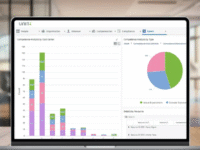What is current housing loan interest rate in Singapore?

Singapore is a bustling cosmopolitan city-state that attracts millions of people from all over the world. However, the cost of living in Singapore is relatively high, especially when it comes to housing.
As a result, many Singaporeans choose to take out housing loans to purchase their dream homes. In this article, we’ll discuss the current housing loan interest rate in Singapore.
What is housing loan?
A housing loan is a type of loan that is used to purchase a residential property. The loan is typically secured against the property itself, which means that if you fail to repay the loan, the money lender can seize the property.
In Singapore, housing loans are offered by banks, financial institutions, and the Housing Development Board (HDB). The interest rates on housing loans in Singapore can be either fixed or floating.
A fixed interest rate means that the interest rate remains the same throughout the loan’s tenure, while a floating interest rate means that the interest rate can fluctuate depending on market conditions.
What is current housing loan interest rate in Singapore?
As of May 2023, the current housing loan interest rate in Singapore ranges from 1.25% to 2.35%. According to the Monetary Authority of Singapore, the average interest rate for new housing loans in March 2023 was 1.48% for fixed-rate loans and 1.37% for floating-rate loans.
However, it’s worth noting that these loan rates can vary depending on the lender’s risk appetite, the borrower’s creditworthiness, and the loan-to-value ratio.
The interest rates vary depending on the type of housing loan you are looking to obtain, your credit score, and the loan tenure.
Generally, the interest rates for shorter loan tenures are lower than those for longer tenures.
For example, the interest rate for a 3-year fixed-rate housing loan ranges from 1.25% to 1.75%. On the other hand, the interest rate for a 35-year fixed-rate housing loan ranges from 2.20% to 2.35%. The interest rate for a floating rate housing loan is currently around 1.60% to 1.90%.
It is important to note that the interest rates mentioned above are indicative rates and are subject to change.
Banks and financial institutions in Singapore often update their interest rates based on various economic factors and market conditions.
In addition to the interest rate, borrowers also need to consider other fees and charges associated with a housing loan. These include processing fees, legal fees, and valuation fees, among others.
These fees can add up to a significant amount, and it is important to factor them in when calculating the total cost of the loan.
To get the best interest rate on a housing loan, borrowers should compare the rates offered by different banks and financial institutions.
It is also recommended to maintain a good credit score, as this can help in securing a lower interest rate.
How housing loans work in Singapore.
Firstly, a borrower needs to choose a property and submit an application for a housing loan to a bank or financial institution.
The application process typically involves submitting personal and financial information, as well as details about the property being purchased.
The lender will then assess the borrower’s creditworthiness, taking into account their income, credit history, and other factors.
If the borrower is deemed eligible, the lender will then offer them a loan amount and interest rate.
The interest rate on housing loans in Singapore can either be fixed or variable. Fixed interest rates remain the same throughout the loan’s tenure, while variable interest rates can fluctuate based on market conditions.
The loan tenure typically ranges from 15 to 30 years, depending on the borrower’s age and income. During this period, the borrower will make monthly repayments to the lender, consisting of both principal and interest.
In addition to the loan amount and interest rate, there are other fees and charges associated with housing loans in Singapore. These can include processing fees, legal fees, valuation fees, and stamp duty.
It’s also worth noting that in Singapore, housing loans are often tied to the property being purchased.
This means that if the borrower sells the property before the loan is fully repaid, they will need to use the sale proceeds to fully repay the outstanding loan amount.
Main factors that affect housing loan interest rates in Singapore
Housing loan interest rates in Singapore are influenced by various factors. These factors determine the rate at which a borrower can obtain a housing loan, and understanding them can help borrowers make informed decisions when taking out a mortgage.
Below are some of the main factors that affect housing loan interest rates in Singapore.
1. Monetary Policy
The Monetary Authority of Singapore (MAS) sets monetary policy to manage inflation and maintain price stability.
The central bank does this by adjusting the interest rates it charges on overnight borrowing and lending between banks.
This rate, called the Singapore Interbank Offered Rate (SIBOR), is used as a benchmark for many housing loans in Singapore.
As a result, when the MAS raises or lowers the SIBOR, it affects the interest rates on housing loans.
2. Economic Conditions
The state of the economy can also have a significant impact on housing loan interest rates. When the economy is doing well, interest rates tend to be higher because lenders want to make a profit from lending money.
Conversely, when the economy is not doing well, interest rates tend to be lower to encourage borrowing and stimulate economic activity.
3. Credit Score
Borrowers with a good credit score are generally offered lower interest rates than those with a poor credit score.
Lenders use credit scores to assess the creditworthiness of borrowers and determine the risk involved in lending money.
A good credit score shows that a borrower is responsible with their finances and is more likely to repay their loan on time.
As a result, lenders are more willing to offer low interest rates to borrowers with good credit scores.
4. Loan Amount and Tenure
The amount and tenure of a housing loan can also affect interest rates. Larger loan amounts may attract higher interest rates as lenders perceive these loans to be riskier.
Similarly, longer loan tenures may also attract higher interest rates as there is a greater risk of default over a longer period. Borrowers who opt for shorter loan tenures may be offered lower interest rates.
5. Type of Loan
There are different types of house loans in Singapore, such as fixed-rate and variable-rate loans.
Fixed-rate loans have a fixed interest rate for the entire loan tenure, while variable-rate loans have an interest rate that can fluctuate over time.
Fixed-rate loans offer borrowers stability and certainty in their monthly repayments, but they may come with a higher interest rate than variable-rate loans.
Variable-rate loans may have lower interest rates initially, but they can be subject to fluctuations depending on market conditions.
Final words
Home loans in Singapore offer an accessible way for people to finance their homes. However, borrowers should carefully consider their financial situation and the terms of the loan before making a commitment.
It’s always a good idea to compare different lenders and loan products to find the best option for your needs.





